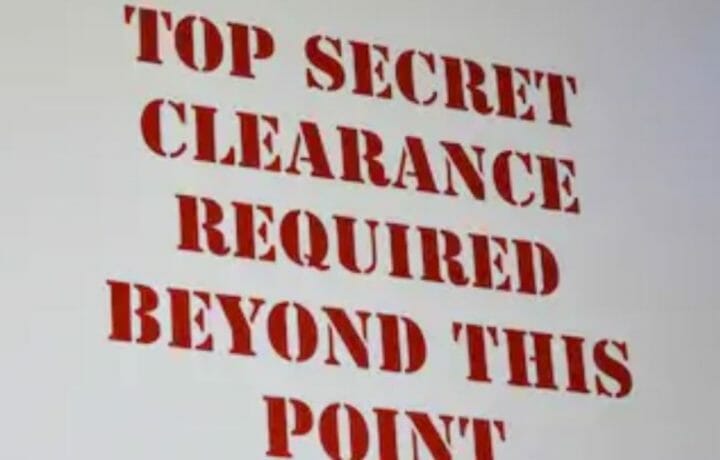One of the fonder childhood memories I have of my grandmother is watching old re-runs of police shows like “Dragnet” together. When I later became a police officer, I discovered that there was still truth in the way the profession was portrayed some 50 years earlier. It might well have been modern day when Detective Joe Friday was asking for “Just the facts, ma’am; Just the facts.”
That Detective Friday’s frequent admonishment is still relevant speaks to human nature. Nervous people – whether crime victims, suspects, or, yes, security clearance applicants – tend to ramble. Very few of them realize the damage they often self-inflict.
The Art of Answering Questions
As a young police officer (and later, a new security clearance investigator), I viewed excessive talkers as a major irritant. I, indeed, wanted “just the facts” so that I could move onto the next big case. But as I grew into the profession, I began to realize that a rambling subject was actually a gift. Some of the most significant cases I developed were a direct result of someone’s inability to stop talking. I now often practice the art of answering questions with my clients.
The problem for many people is that they are simply uncomfortable with silence; they feel compelled to say something to fill the void. A seasoned security clearance investigator will use silence to his or her advantage, knowing that something as short as a five second pause after an applicant has finished answering a question will often cause the applicant to keep expanding on his or her answer until they begin to provide damaging details or admissions justifiably left out of their initial response.
The lesson here is simple: don’t become one of those people. Listen very carefully to the actual questions asked by your background investigator and respond succinctly and only to those questions. (This same rule applies in completing your SF-86 – don’t write a novel in the comments portion – and in any subsequent appeal hearing). If the question warrants only a “yes” or a “no,” don’t try to hedge and give an ambiguous answer that will create more questions. If the questioner wants further information after your response, he or she will ask. Embrace silence: it’s just a game.
How to Offer Mitigating Information
Finally, offer mitigating information only when it is actually mitigating – not just because you are embarrassed in front of your background investigator and feel the need to justify yourself as so many applicants do. (Actual example: “I only do Cocaine when I’m drunk”…probably not the best mitigation). Often times the excuse is worse than the conduct.
Whatever issues you think you have, you can be certain that your investigator has dealt with dozens of people with far bigger problems. Your mission is to blend into the larger pool of security clearance applicants – not to stand out by sharing your life story. You do that by providing “just the facts.”
This article is intended as general information only and should not be construed as legal advice. Consult an attorney regarding your specific situation.



